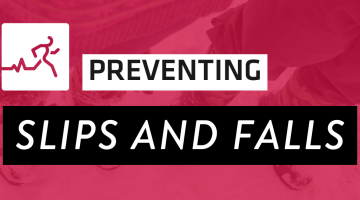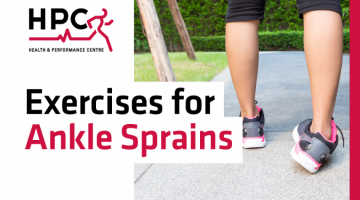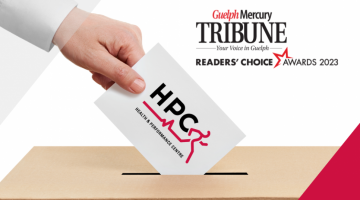Symptoms of Concussions: Vestibular Impacts

A concussion is a functional, traumatic brain injury ranging from mild to severe. Concussions are a common injury that can occur in sports, motor vehicle accidents, and everyday life. From 2016-2017, over 40 thousand Canadian children from the ages of 5 to 19 years old suffered concussions.
Concussions can cause headaches, dizziness, balance problems, cognitive difficulties and much more. Concussions can also impact the vestibular system of the body, disrupting its function and negatively impacting vestibular reflexes. Most concussions resolve within a few weeks, but recovery varies among individuals.
What Is A Vestibular Concussion?
A vestibular concussion is a type of traumatic brain injury that affects the inner ear and the balance center of the brain. It is caused by a blow to the head or a sudden acceleration or deceleration of the head. Symptoms of a vestibular concussion can include dizziness, vertigo, loss of balance, and difficulty with coordination. These symptoms can be temporary or long-lasting, depending on the severity of the injury. It is important to seek medical attention if you suspect you have a vestibular concussion.
Signs and Symptoms of a Vestibular Concussion:
Symptoms of a vestibular concussion can include:
-
dizziness
-
vertigo
-
loss of balance
-
difficulty with coordination
How is a Vestibular Concussion Diagnosed?
A vestibular concussion is typically diagnosed through a combination of physical examination, medical history, and diagnostic tests here at the Health and Performance Centre in Guelph, ON.
During the physical examination, a healthcare professional in the HPC Concussion Care Team (Sports Doctor, physiotherapist, chiropractor, massage therapist or naturopathic doctor) will check for signs of a concussion, such as confusion, memory loss, and changes in vision or hearing. They will also assess your balance and coordination, as well as perform a thorough examination of your ears and eyes.
Medical history is also important, as your healthcare professional will ask about any previous head injuries, symptoms you're currently experiencing, and any other relevant information.
A sports medicine doctor or physiotherapist at the Health & Performance Centre clinic in Guelph can perform various tests to assess and diagnose a vestibular concussion. Some of the tests that may be used include:
-
Physical examination: This will include a thorough examination of the head, neck, and ears, as well as an assessment of the patient's balance and coordination.
-
Balance and vestibular function tests: These tests, such as the Dix-Hallpike test or the Romberg test, can help to evaluate the function of the vestibular system and can help to diagnose a vestibular concussion.
-
Concussion assessment tools: Sport medicine doctor or physiotherapist may use standardized assessment tools, such as the Sport Concussion Assessment Tool (SCAT) or the Balance Error Scoring System (BESS) to evaluate the patient's cognitive and physical symptoms.
At Health & Performance Centre clinic in Guelph, we have a team of experienced sports medicine doctors, physiotherapists and other specialists who can provide a comprehensive assessment of a vestibular concussion, and work with the patient to develop an individualized treatment plan that may include physical therapy, vestibular rehabilitation, and other therapies to help manage symptoms and promote recovery.
Physiotherapy Treatment for the Vestibular Effects of Concussions:
What is Vestibular Physiotherapy?
Vestibular physiotherapy is a form of physical rehabilitation targeted to reduce dizziness, balance problems, and headaches, all of which are common after concussion. Vestibular therapies are patient-specific and work to target the symptoms that are causing the most problems for the patient at that time.
How Does Vestibular Rehabilitation Work?
Gaze stabilization, also known as adaptation, helps to improve vision clarity as the head moves for activities like reading, taking notes in class, or walking, and driving. Gaze stabilization exercises usually involve rotating the head while fixating the gaze on a visual target.
Balance training is important for ensuring that patients can perform daily tasks or specific activities like sports as safely as possible. Balance exercises usually involve standing with different foot positions on stable or wobbly surfaces and will be targeted towards your specific balance problem.
Habituation, or dizziness training, helps to improve dizziness in scenarios specific to the head positions that aggravate patient symptoms like bending down to pick up items. Habituation exercises improve the body’s response to those uncomfortable head positions through repetition.
What are the Risks and Benefits of Vestibular Rehabilitation?
There are many long-term benefits of vestibular rehabilitation, making it a suitable treatment for dizziness and balance problems after concussion. Studies have shown that patients who have completed vestibular rehabilitation have decreased dizziness and headaches and improved balance compared to those who have not received vestibular treatment following a concussion.
Vestibular rehabilitation can also help speed up concussion recovery times and prevent long-term symptoms. Sometimes vestibular rehabilitation will worsen symptoms during rehabilitation exercise performance and for a short time after. These symptoms can include dizziness, headaches, nausea, and balance difficulties. If you do experience any new symptoms or worsening of symptoms during rehabilitation treatment, you are advised to tell your healthcare provider.
For more information about concussions, or the Guelph Physiotherapists at the Health and Performance Centre’s specialized concussion clinic, contact us today.
Book an Appointment
Learn How HPC Can Help
References
Canada, P. H. A. of. (2020, October 21). Government of Canada. Canada.ca.
https://www.canada.ca/en/public-health/services/diseases/concussion-sign-symptoms/sportrecreation.html.
Concussion Assessment. Physiopedia. (2021). https://physiopedia.com/Concussion_Assessment?utm_source=physiopedia&utm_medium=related_articles&ut m_campaign=ongoing_internal.
Farrell, L. (2015). Vestibular Rehabilitation: An Effective, Evidence-Based Treatment. Vestibular Disorders Association.
McCrory, P., Meeuwisse, W., Dvořák, J., Aubry, M., Bailes, J., Broglio, S., Cantu, R. C., Cassidy, D.,
Echemendia, R. J., Castellani, R. J., Davis, G. A., Ellenbogen, R., Emery, C., Engebretsen, L.,
Feddermann-Demont, N., Giza, C. C., Guskiewicz, K. M., Herring, S., Iverson, G. L., Johnston, K. M., … Vos, P. E. (2017). Consensus statement on concussion in sport-the 5th international conference on concussion in sport held in Berlin, October 2016. British journal of sports medicine, 51(11),
838–847. https://doi.org/10.1136/bjsports-2017-097699
What is Concussion? Physiopedia. (2021). https://physiopedia.com/What_is_Concussion%3F?utm_source=physiopedia&utm_medium=related_articles&u tm_campaign=ongoing_internal.



